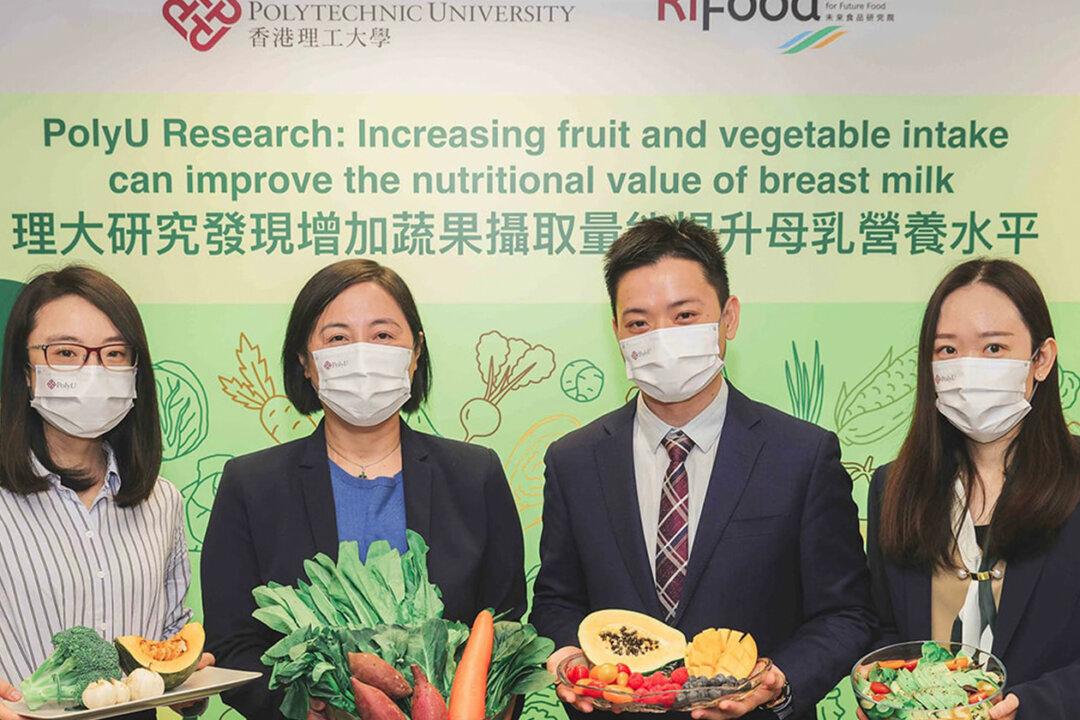The Research Institute for Future Food (RiFood) of Polytechnic University analyzed the dietary record of lactating women in Hong Kong and the nutrient levels of their breast milk. The study suggests that women usually fail to consume enough fruit and vegetables to develop a dietary habit that maintains the nutrient level of breast milk, especially the carotenoid and polyphenol content.
The number of women in Hong Kong who choose to breastfeed their babies has been steadily rising. Breast milk contains different nutrients and plays a vital role in the healthy growth and development of infants. The research team pointed out that the first 1,000 days—from pregnancy to a two-year-old infant—forms the basis for establishing long-term health.




